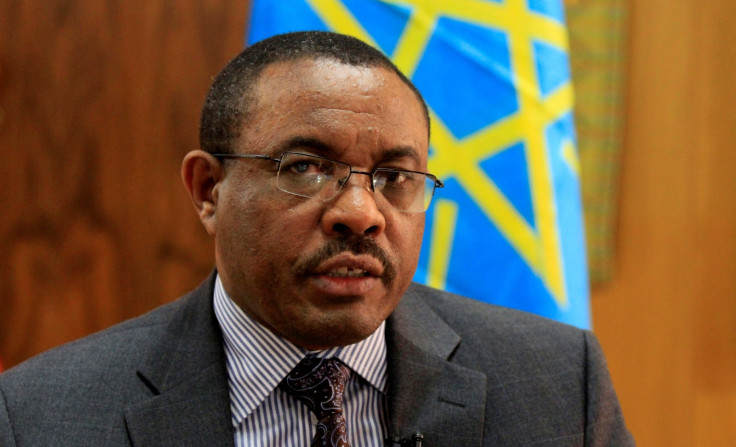Where is Ethiopia heading after Prime Minister Hailemariam Desalegn's surprise resignation?
Desalegn announced that he was stepping down to quell months-long unrest in the landlocked African nation.
The landlocked African state of Ethiopia is at a crossroads after Prime Minister Hailemariam Desalegn succumbed to increasing public pressure and announced his surprise resignation. It is an unprecedented move by the premier of the Horn of Africa nation as he said his stepping down would pave the way for "lasting peace".
Ethiopia, Africa's second most populous country, has been reeling under protracted anti-government demonstrations against human rights violations and political clampdowns, with protests gathering momentum back in 2016. What started as a campaign against the government's urban development plan for capital Addis Ababa, ended up with hundreds of people losing their lives.
"I want to be part of the solution. I believe that the public's demands and questions should be met and answered," Hailemariam, 53, said in his brief televised address. "Unrest and political crisis have led to the loss of lives and displacement of many. I see my resignation as vital in the bid to carry out reforms that would lead to sustainable peace and democracy." However, it is still unclear whether the country's lawmakers have accepted his resignation.
Hailemariam, formerly an academic and then a low-key politician, also stepped down as the chairman of the governing coalition, the Ethiopian People's Revolutionary Democratic Front, throwing uncertainty over who would replace him in the coming days. One of the names being speculated to step into the role is Lemma Megerssa, who hails from the country's Oromia region. However, there is quite a bit of political infighting in the ruling bloc.
Caving into the demands which are being spearheaded by the country's two largest ethnic groups in Oromo and Amharic, the government has released as many as 6,000 political prisoners, journalists and other critics of the government since the beginning of this year.
The long-running protests have had an adverse effect on routine life and business in Ethiopia, one of Africa's fastest growing economies.
Ethiopia is also a key partner of US and European nations in the fight against radical Islamist groups in the region, and any significant political development will also have its repercussions on those operations. The 10-month-long state of emergency imposed in October 2016 somewhat quelled the protests but widespread anti-government rallies periodically surfaced after that.
"My decision is to be part of the ongoing reform programmes," said the departing prime minister, according to the state-backed broadcaster Fana. The news outlet added, "The prime minister said he tried his utmost effort to solve the crisis in his country and he is resigning now to be part of a solution for it."
Hailemariam, who is expected to remain as the caretaker prime minister until a replacement is found, ascended to the position in 2012 after serving as deputy prime minister and foreign minister under the previous regime led by Marxist rebel leader and strongman Meles Zenawi.
"Political infighting between members of the ruling party has caused a serious fracture to the political establishment here," Yilikal Getnet, a politician from the opposition camp, told Associated Press. "There is no unity within the government. Plus, the mass movement of people has rendered the party powerless and is pitting one official against the other."























